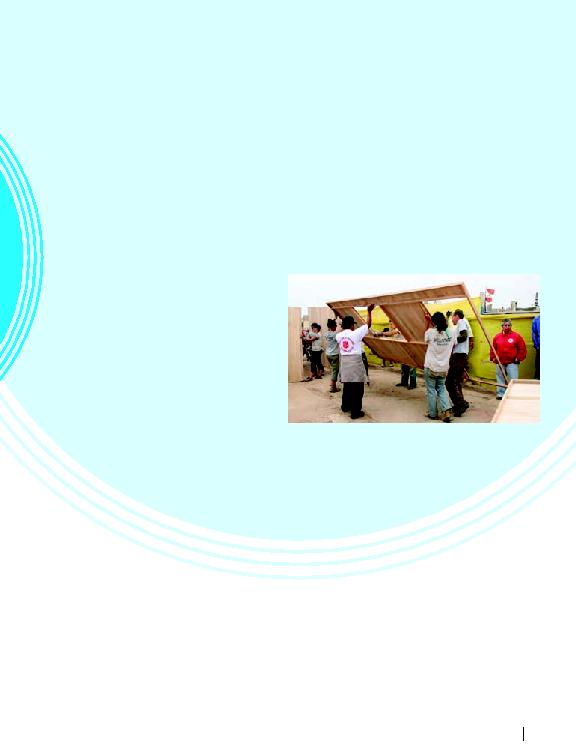
signed human beings? What has He designed us for?
The Bible teaches that the essence of a human being
is that we are made in the image of God. Theologians
have debated exactly what it means because there is
no verse that says what "made in the image of God"
ship to others. We are to love others as much as
we love ourselves. There ought to be a sense of
that God intended. When we experience them the way
God designed them, we experience what it really means
to reflect the image of God. But the Fall happened and
it has distorted all four of those relationships. Our ac-
tions and the cultures and societies we create don't func-
tion the way they are supposed to. Poverty is rooted
in the fundamental broken nature of human beings.
sive systems that lock people into poverty. But one of the
things that we see in inner city communities in the United
States is predator/ prey mentality. People sometimes
feel they are allowed to attack the weak. If the weak have
property or try to get ahead, often predators will come
and try to take advantage. My church had a Christmas
celebration for some inner city children living around our
church. At the end of it we saw some kids smashing their
toys against the walls. We asked, "What are you doing?"
They said, "If you have something someone will come and
take it. We smash our toys before someone can take them
away from us." The strong take advantage of the weak.
When people live in that setting, it is difficult for them to
invest in the future. Someone will take that future away.
is doing in His creation. Sometimes due to the Fall peo-
ple engage in behaviors that are inconsistent with this
process of restoration. Sometimes what we need to do is
allow people to experience some of the consequences of
their own sin in order for them to see what that leads
to. At times we get in the way of the Holy Spirit's work
by debiting the pain. For example, if every time a child
does the wrong thing and Mom and Dad rush in, fix the
problem and take away the pain, then the child doesn't
learn to change the behavior. Sometimes the best way to
love people is for them to experience the consequences of
to work. If a person is not willing to work then the Bible
says they shouldn't eat. If we are providing all sorts of
handouts to people who are not willing to work we are
enabling them to persist in what isn't good for them.
to find out what their needs are. That seems reasonable.
One of the primary dynamics we are trying to overcome
is a marred identity, which many poor people have. By
marred identity I mean that broken relationship with
self that many materially poor people are experienc-
ing so they are left with a sense of inferiority, that they
can't actually affect change in the world around them.
We approach people that have a sense of incapacity as
Pueblo, Peru to construct modular homes so families
could move back to their own property and way of life
after an earthquake left them homeless.